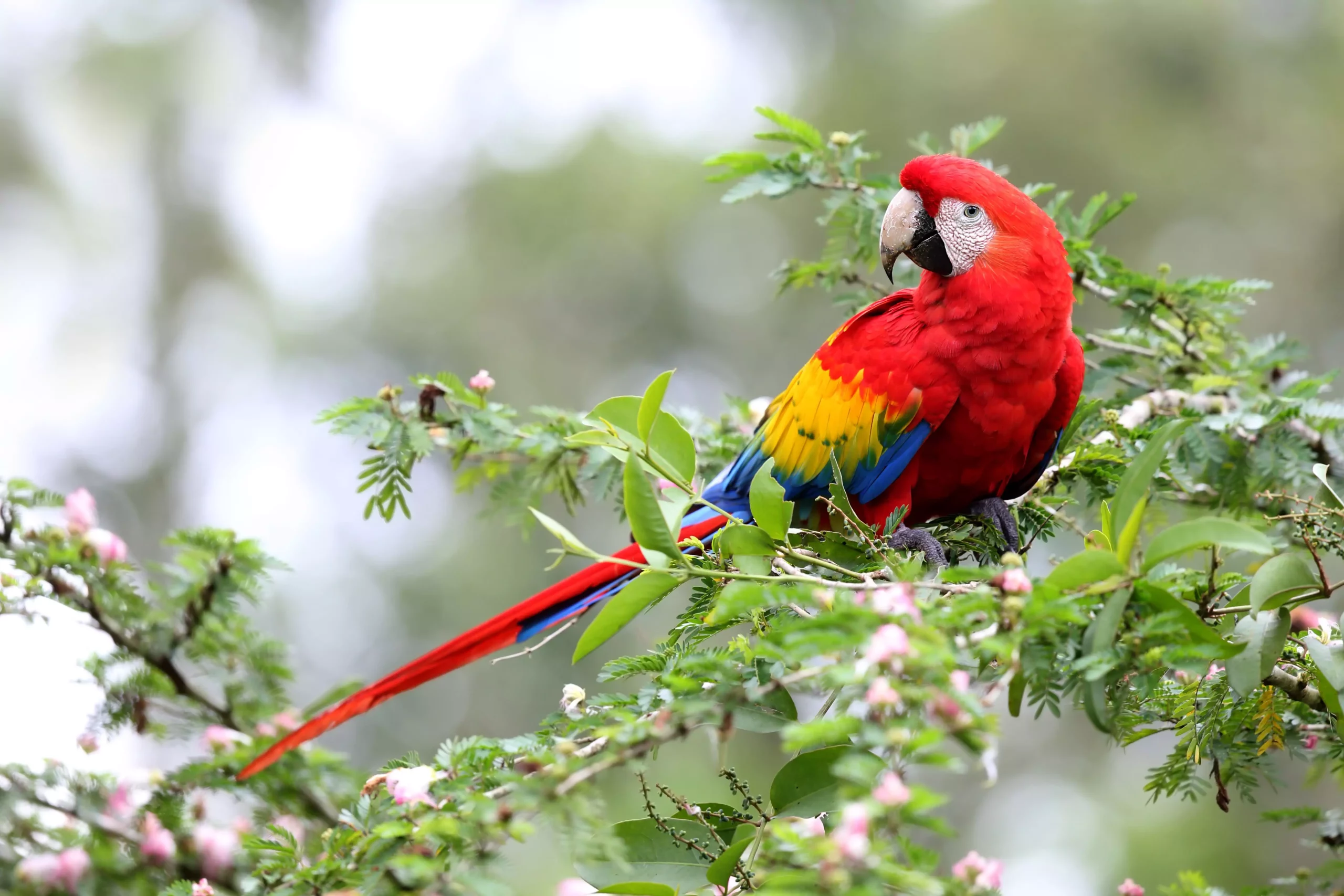Macaws, enchanting avian members of the Psittaciformes order, capture the hearts of many with their vibrant plumage and engaging personalities. With over 400 different types of parrots, macaws stand out as the largest, representing a diverse family that ranges from small to colossal sizes. Macaws are not just ordinary birds; they offer a glimpse into the extraordinary diversity and complexity of parrot species.
Macaws come in various sizes and forms, with weights generally oscillating between two to four pounds. The hyacinth macaw, the biggest of them all, can grow up to three and a half feet long and display a staggering wingspan of up to 60 inches. Such measurements hint at the physical strength and majestic presence these birds hold. Yet, the macaw family is far from homogenous. Smaller varieties, commonly referred to as mini macaws, can sometimes only stretch to 12 inches long, a size reminiscent of a typical conure or a large parakeet. This showcases the fascinating range within the macaw classification, as it highlights how one family can contain both giants and smaller counterparts.
What truly sets macaws apart, beyond their size, is the distinctive bare rings of skin encircling their eyes. This feature stands as a hallmark of the macaw identity, instantly recognizable to enthusiasts and newcomers alike. Each species bears this characteristic, making it easier to identify and appreciate these remarkable birds. For potential caretakers, understanding these unique identifiers is crucial for distinguishing between the different macaw types and their specific needs.
Macaws are not just beautiful creatures; they are also long-lived. Certain species, particularly the blue and gold macaws, have an impressive lifespan averaging around 60 years. Yet, it is not uncommon for many individuals to exceed even that, living up to 80 years, thus forming a lifelong connection with their human companions. The significant longevity of these birds warrants careful consideration for anyone thinking of bringing a macaw into their home. It is advised that prospective owners prepare for the long-term commitment akin to caring for a dependent. Adopting an older macaw can be a compassionate alternative, giving an existing bird the chance for a loving and stable environment.
Given their lifespan, there is a concern regarding macaws outliving their owners. Preparing for the future care of these birds becomes an essential responsibility. Owners might need to make provisions for their parrots that resemble the arrangements made for any other family member, ensuring their well-being through life’s unpredictable events.
The fascination with macaws has driven breeders to create an array of hybrid varieties, such as the Catalina, Harlequin, and the Camelot macaw. These hybrids can sport breathtaking combinations of colors and patterns, drawing interest from pet owners. However, the existence of hybrid macaws prompts ethical discussions regarding their place in the avian world. Not naturally occurring in the wild, these hybrids raise concerns about conservation and the implications of breeding practices that prioritize aesthetics over the birds’ natural heritage.
The popularity of these hybrids raises a critical question: should the pursuit of beauty overshadow the welfare considerations of both hybrid and purebred parrots? Awareness of such issues is crucial for potential pet owners and the broader avian community. Such awareness can help promote responsible ownership and encourage thoughtful decisions in adopting these remarkable birds.
While their beauty is undeniable, macaws require experience and dedication from their caregivers. Possessing powerful beaks, they can inflict serious damage during aggressive behavior or hormonal surges. Because of this strength, it’s recommended that potential owners be well-versed in caring for large parrots. It is vital to provide social interactions to stave off boredom, which can lead to vocalizations and destructive behaviors. A well-stimulated macaw is less likely to engage in behaviors that can damage property or reduce its quality of life.
Macaws are not merely pets; they are dynamic companions that require a significant commitment and understanding. The vibrant world of macaws offers insights into the complexities of avian care, the responsibilities of ownership, and the fascinating variety within the parrot species. For those willing to invest time and love, macaws can be remarkable additions to the family, enriched with personality and loyalty that lasts a lifetime.

